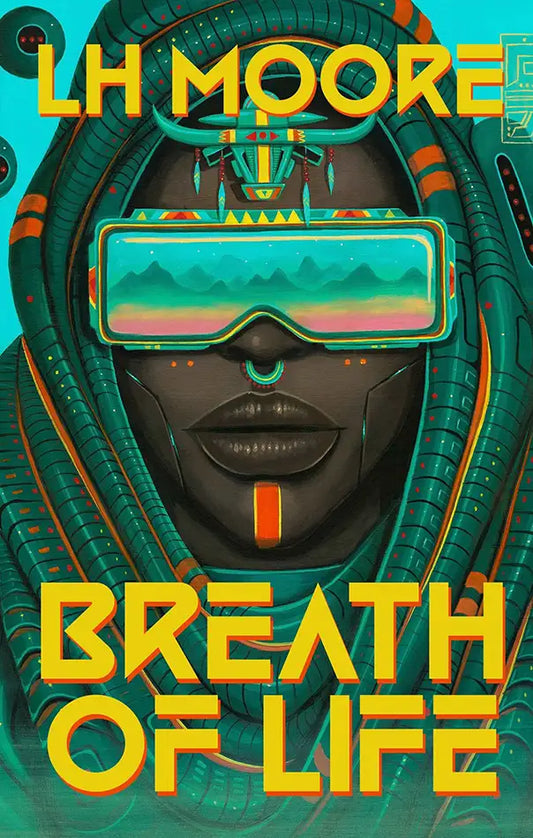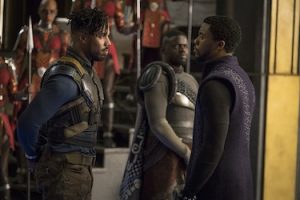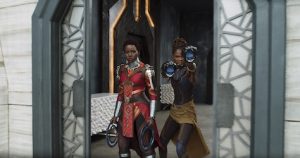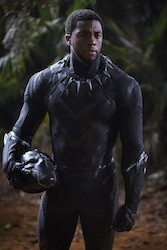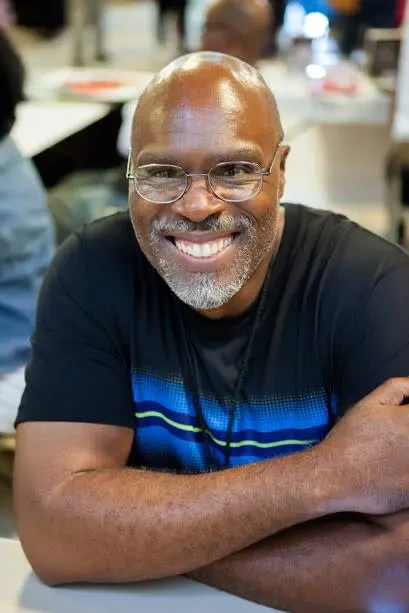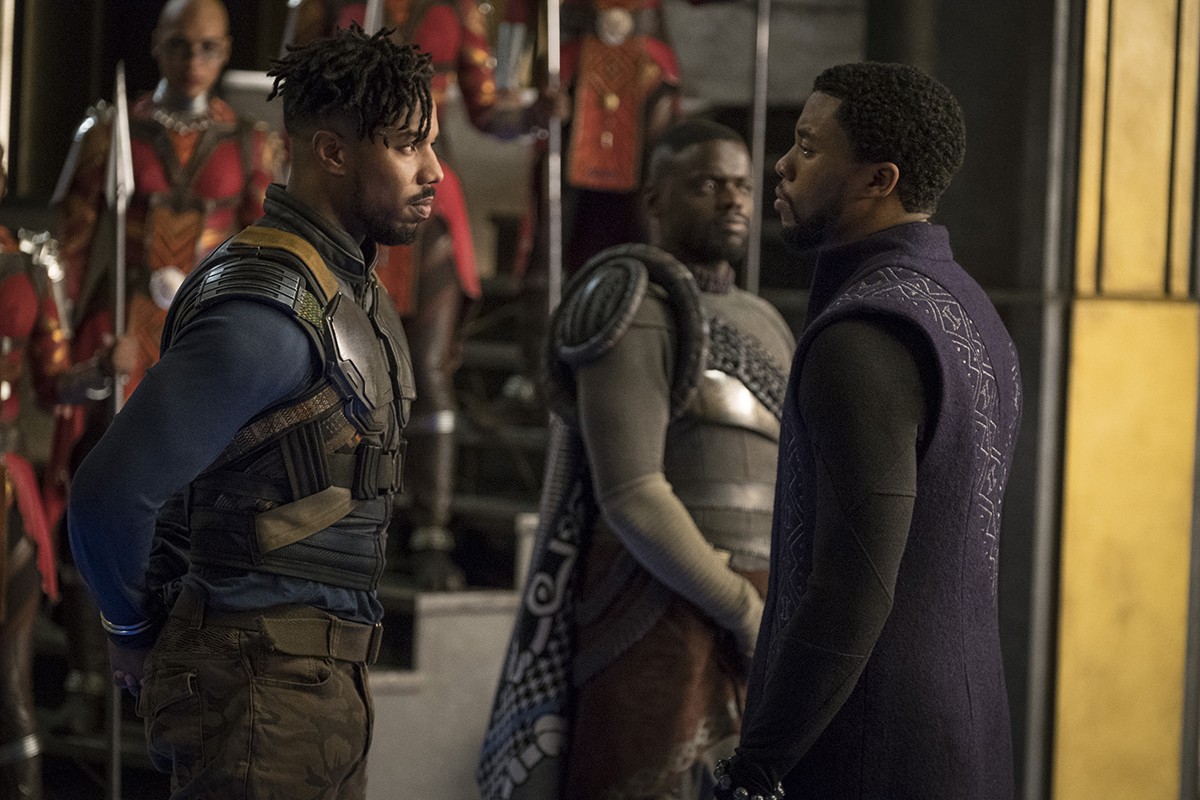
“An artist is somebody who helps you see reality again.”
~ James Baldwin
There are those who see reality in terms of numbers, so let’s talk numbers. As of this writing, weeks before the film’s premiere date of February 16, 2018, Marvel’s movie, Black Panther, has the most pre-sale tickets of any Marvel movie ever. Let’s repeat that: Out of what feels like seven thousand grouped Marvel big-ticket hero movies, Black Panther has already accumulated the most pre-sale interest; on top of that, its expected opening weekend take is in the 100 – 120 million range. Dollars.
So, we see now that the hoary adage of there “not being a market” for precisely this thing (deeper still: Black sci-fi/fantasy) makes very little sense. Worldwide anticipation is already feverish. The teaser trailer alone generated close to a hundred million views within the first twenty-four hours of dropping onto the internet. The reality is we (PoC) have always been here. The market has always been there, and the audience has eagerly clamored.
We weren't seen
Yet, somehow, we weren’t seen.
I am an African American man writing this. Accepting me as a human being shouldn’t require mental gymnastics to accomplish. Any mainstream needing imagination to “relate” to the simple fact that it lives with me (in the broad, general “me”) every single day reveals a shocking lack of human connectivity; a type of self-imposed blindness.
A fan-favorite scene from the upcoming extravaganza is of the Panther stepping forward, arms outstretched, face bared but body “suited up”; this scene says, “I am!” in so many ways I damn near get giddy. So, let me stand before you as I am: with arms out, brown skin, and a visual and cultural aesthetic that goes back to before the Orisha taught the Greek pantheon how to be gods.
Let me stand as though we both understand each other when I say, “We are home.”
“An artist is someone who helps you see reality again.” Representation is reality. Why are PoC excited? First, look at who’s starring. Black Panther is chock full of so much Black acting talent, all we’d need is a cameo from Denzel to make Oscars spontaneously appear next to every seat in every theatre. Then look at who’s behind the cameras: Ryan Coogler, director. Black man. Writers: Coogler and Joe Robert Cole. Black men. Production designer: Hannah Beachler, Black woman. Cinematographer: Rachel Morrison, White woman. Craft services is probably done by a score of grannies in kitchens—and nobody in their right mind is mad at that—and there’s undoubtedly a double score of White men in the mix as well, as White dudes always are, but the thing is, that last contingent is not the one out in front. Yes, this movie is a major enterprise by a major corporate entity (Disney/Marvel), made to make major bucks … but it’s a different animal than the next action flick starring Vin Diesel as Shaft.
This movie says an African nation steers the world. This movie says Africa is technology; Africa is art; Africa, all fifty-four countries of her, is not only viable it is paramount. Name me one mainstream, mass-appeal movie that’s come out since Coming to America to feature its main characters with “African” accents.
Granted, Wakanda may be make-believe, but so is holding “these truths to be self-evident.”
Black Panther is huge for its clear and unapologetic use of scarification, of costuming and set design straight from Africa’s past, present, and imagined future, of technology married to the natural world, of an equally clear disdain for US capitalism via Wakanda’s socialist, near-Utopian structures (the irony of a corporate money-maker carrying this message is not lost, but the message is pointed), and the complete repudiation of American “superiority.” Captain America may be cool, but it’s T’Challa with the swag to say, “Get this man a shield.”
Black Panther is Afrofuturism
The reality is that Black Panther is Afrofuturism; that welcoming, communal mindset that offers space to shed the old (which, nine times out of ten, is a system designed to control and inhibit most of the people who think it actually benefits them) for a more organic, authentic new. It could even be called Panfuturism without breaking stride.
Afrofuturism’s job is to entertain, but also to remind you of your own powerful imagination.
If you’ve never read Kiini Ibura Salaam’s work, you’ve never seen a story of alien infiltration told so fully from the realm of the senses as to call the Orisha down.
If you haven’t heard of Afua Richardson, then you’ve never seen emergent theory carried out more brilliantly than in Image Comics’ Genius.
If you didn’t know that musician Speech (and the group he was part of, Arrested Development) were science fiction, you’ve been misled to think of science fiction only in terms of metals, materials, and missions. Science fiction isn’t so much about the future—no art form is—it’s about the now. And a lyric from Speech like, “Just a shell until you decide to rebel”—about now, no matter what year it happens to be heard—predates The Hunger Games in both concision and time.
Black Panther’s importance in this can’t be touted enough. Its very existence is a rebellion where the future—the best possible future—is for all of us. It’s an organic future that we have to grow. Even in real life, this sense is popping up everywhere; farms are replacing food deserts; grassroots initiatives on education, health, and spirituality are making civic differences, which is a huge, heroic, Afrofuturistic, science fictiony thing: the notion that we, the people, can fight against the machine, that we can make a difference beyond lip-service to some underlying “Nice try.”
We are every bit the Black Panther in our real lives as the Panther on screen.
We were Blade, before. We were Mantis. We were Luke Cage on Netflix. We so wanted to be Storm. Now we’re the guy who Tony Stark has to crib notes from. We’re the Dora Milaje. We’re Panther’s sister, Shuri. We are the elders and we are the disciples. Art and representation create reality. Art shows us how someone wants us to see ourselves. That’s nothing but power. Energy for the taking. Excitement for the promise of the Black Panther is nothing less than returning to the world energies that have been denied it, and leaving viewers with the mission to pay that energy forward, not hoard it.
Transformation
See, the Black imagination has always been directed at transformation. It had to be. Musically, PoC know how to make a dollar out of fifteen cents. Poetically, we know why the caged bird sings. Dramatically, there has never been a better starship captain than Benjamin Sisko (I will fight you), he who transformed his consciousness from one of pain to one of infinite exploration. Transforming beyond the constraints of the false narratives of hood, comic relief, sidekick, or sacrificial/spiritual Negro, even characters originally created by Whites (such as Sisko, and even the Black Panther—kudos to Jack Kirby and Stan Lee on that, honorary brothas as far as I’m concerned) became something more after being molded by Black hands. Avery Brooks added nuanced touches to Sisko, bringing about aspects of racial identity to the Star Trek universe previously untouched. Kirby and Lee were smart enough in 1966 to create a microcosm of Africa’s experiences with the West (colonialism, notions of supremacy, the fleecing of the continent’s resources) that was so close to what a person from the diaspora would have created, it gained acceptance within the Black community; jump to 2018, and Chadwick Boseman has completely made the character his own.
In doing so, he’s sparked a worldwide joy in people who’ve spent quite a bit of time simply wanting to be seen.
Which is certainly not to say PoC artists exist solely to transform the works of others. There is a long history (albeit obscured or unseen by mainstream eyes) of Afrofuturism announcing itself to the people of the world. To see how far back we go, here are a few titles for Googling at your convenience: Martin Delany, Blake, or the Huts of America (1859); Frances Harper, Iola Leroy (1892); Pauline Hopkins, Of One Blood (1902); Edward A. Johnson, Light Ahead for the Negro (1904); W. E. B. Du Bois, The Comet (1920).
Economic science fiction. Spiritual science fiction. New worlds from the interiors of the old. Visionary.
To see is to be seen.
To this day, Black sci-fi and Afrofuturism continue to transform narratives and daily lives the world over. There’s a direct power in it. One need look no further than the triumvirate of adrienne maree brown, Ytasha Womack, and Walidah Imarisha via Octavia’s Brood to see sci-fi visions used as engines for real social change. The behemoth of status quo can move. We have always put out works for our people to see and, in seeing, be seen. Charles Saunders and Milton Davis have been championing Sword & Soul for decades. Maurice Broaddus, Tananarive Due, and Linda Addison have been bubbling the psychological stew of horror for many moons.
Sci-fi/Fantasy? Yeah, me, Andrea Hairston, Phenderson Djeli Clark, NK Jemisin and a whole family-reunion-sized park of folks been at it for way longer than a minute.
We've Always Been Here
So, yeah, the Black Panther ain’t nothing new. Nothing new about pie, either. It’s all in how you slice it. We’ve always seen ourselves, we’ve always seen the world; there was never a question of having to “relate.”
The question we faced was, “How do we navigate all the obstacles thrown up to shroud and silence us?” Do we still face this? Yes, but amazing works are being produced, acknowledged, awarded, and championed. We’ve never needed validation in order to create, we’ve just needed people to get out of our way.
Black Panther, as an example of a major multi-million-dollar budgeted cinematic funk delight, is amazing. It was amazing before its release. It’ll be amazing long into DVD sales. If you’re wowed by the “Come at me, Bro”-ness of your favorite heroes in tights, you can damn well be wowed by a story of a secret land of mages, warriors, healers, betrayers, kings, and queens.
And if not, you can kindly step out of the way.
See, a tactic of oppression is to tell the oppressed that even wanting to express themselves is an act of violence. How you see yourself, says oppression, is irrelevant. You’re supposed to be invisible.
Behold the flipped script: Us telling the gatekeepers two things: one, they are irrelevant to our interests, and, two, we have never been invisible. James Baldwin tried to tell that to people all the time.
We are here to help you see reality again, but we have zero interest in holding your eyes open.
This isn’t just a movie. It’s a revolution in representation, persistence of vision, determination, and in-your-face African badassery (even down to the crossed-arm salute; remember when folks got apoplectic and paranoid at the Obamas giving each other dap? Ha, just wait!), badassery the likes of which genre films had better get used to seeing for the far-foreseeable future.
So, for anybody still unsure why the world is so excited about Black Panther, let a brother pinpoint the precise moment everything about the character made the jump from “another cool dude in the latest Marvel movie” to the unbridled joy of having grown men and women today wearing Panther underoos. It happened in Captain America: Civil War, a movie ostensibly about Captain America, but let’s be real, it was Black Panther’s movie, and it wasn’t even a moment which shined exclusively on Panther/T’Challa’s character.
It was the actress Florence Kasumba, as one of T’Challa’s elite guard of women warriors, the Dora Milaje.
It was one line spoken by Ms. Kasumba to one of the major franchise characters of Marvel’s cinematic universe, the Black Widow. Ms. Kasumba helped folks see reality. She helped everybody see reality. Doors that were previously assiduously closed, we are opening. Stand in the way of the world’s future? Yeah, not quite.
“Move,” said the Dora Milaje, “or you will be moved.”
Welcome to Wakanda.


